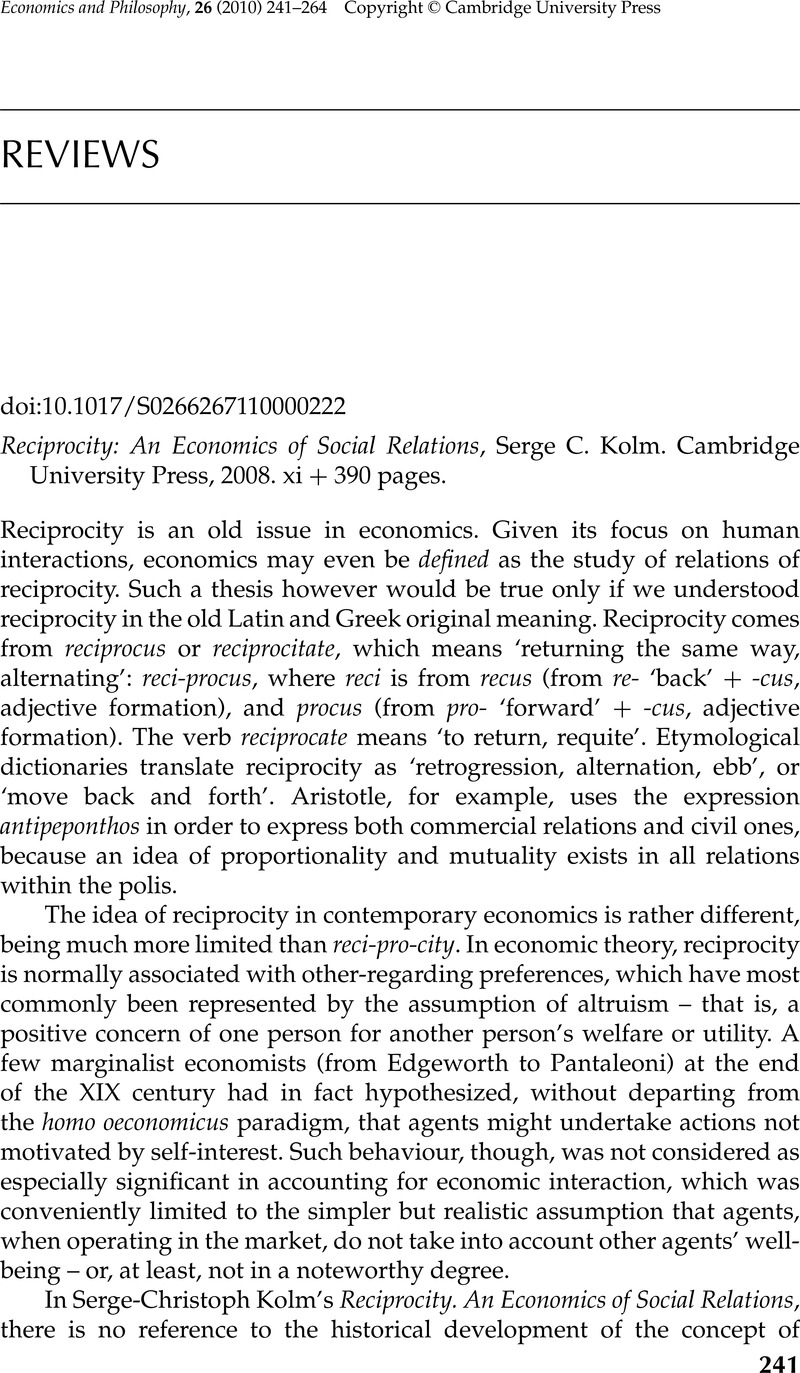No CrossRef data available.
Article contents
Reciprocity: An Economics of Social Relations, Serge C. Kolm. Cambridge University Press, 2008. xi + 390 pages.
Published online by Cambridge University Press: 01 July 2010
Abstract
An abstract is not available for this content so a preview has been provided. Please use the Get access link above for information on how to access this content.

- Type
- Reviews
- Information
- Copyright
- Copyright © Cambridge University Press 2010
References
REFERENCES
Bernheim, D. and Stark, O. 1988. Altruism within the family reconsidered: Do nice guys finish last? American Economic Review 78: 1034–1045.Google Scholar
Bruni, L. and Sugden, R. 2008. Fraternity: why the market need not to be a morally free zone. Economics and Philosophy 24: 35–64.CrossRefGoogle Scholar
Fehr, E. and Gächter, S. 1998. Reciprocity and economics: the economic implications of Homo reciprocans. European Economic Review 42: 845–859.CrossRefGoogle Scholar
Nussbaum, M. C. 1986. The Fragility of Goodness: Luck and Ethics in Greek Tragedy and Philosophy. Cambridge: Cambridge University Press.Google Scholar
Rabin, M. 1993. Incorporating fairness into game theory and economics. American Economic Review 83: 1281–1302.Google Scholar
Sugden, R. 2005. Correspondence of sentiments: an explanation of the pleasure of social interaction. In Happiness in Economics, ed. Bruni, L. and Porta, P., 91–115. Oxford: Oxford University Press.CrossRefGoogle Scholar
Walzer, M. 1983. Spheres of Justice: A Defence of Pluralism and Equality. New York: Basic Books.Google Scholar


